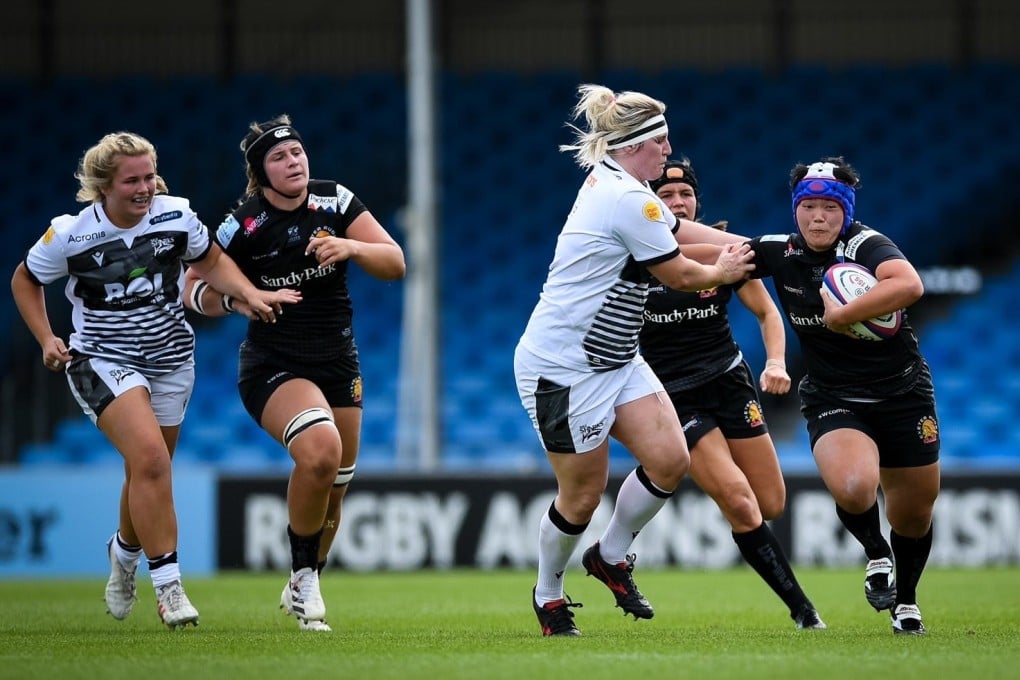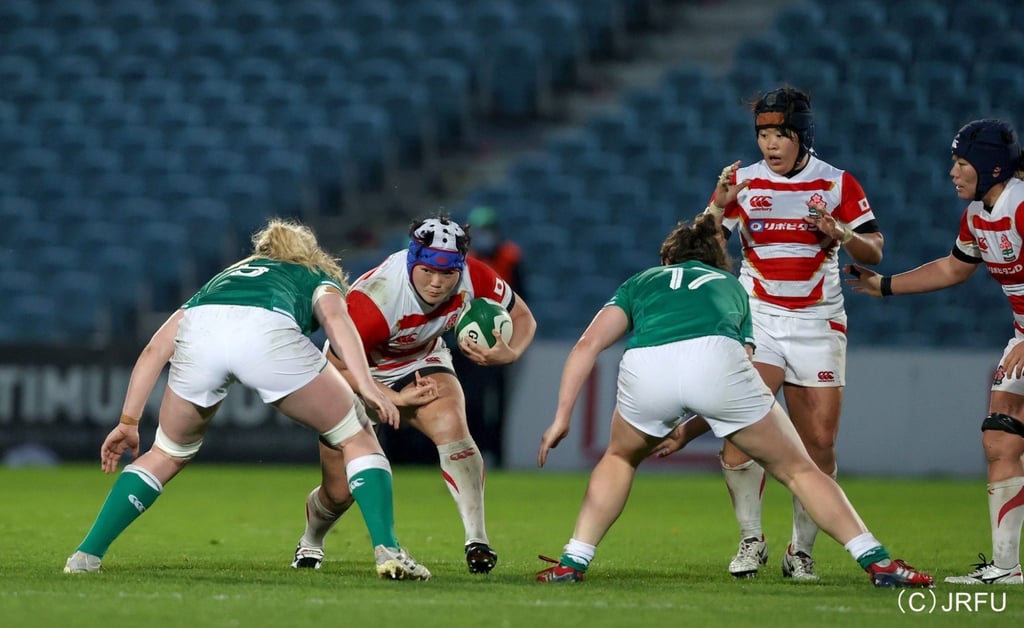Meet the rising female stars of Japanese rugby bringing the sport to a new generation of fans
- Sachiko Kato and Kanako Kobayashi say it is their turn to win over a new generation of women to the sport
- ‘When we played at the last World Cup, it was very difficult,’ says Kobayashi. ‘Now I think the team has matured and we are stronger everywhere on the pitch’

Two rising stars of women’s rugby in Japan are honing their skills in the top tier of the sport in England, but with their eyes very much on the World Cup – and Sachiko Kato and Kanako Kobayashi say that a good performance in New Zealand in October could give added impetus to women’s rugby in their homeland.
After all, they point out, relatively few people in Japan took any notice of men’s rugby until September 2015, when Japan defeated two-times world champions South Africa in the Rugby World Cup in England. Frequently described as the biggest upset in rugby union history, the Brave Blossoms defeated the Springboks 32-34 with a last-minute try.
Interest in the sport was further cemented when Japan memorably hosted the tournament in 2019. The home team claimed the scalps of traditional powerhouses Scotland, Ireland and Samoa, as well as Russia, before finally going out in the quarter-finals to South Africa.
Now, 22-year-old Kato and Kobayashi, 23, say it is their turn to win over a new generation of women to the sport.

“When we played at the last World Cup, it was very difficult,” said Kobayashi, who plays as a centre for both Exeter Chiefs and Japan. “Back then, we had a mix of older players and a lot of youngsters, but now I think the team has matured and we are stronger everywhere on the pitch.”